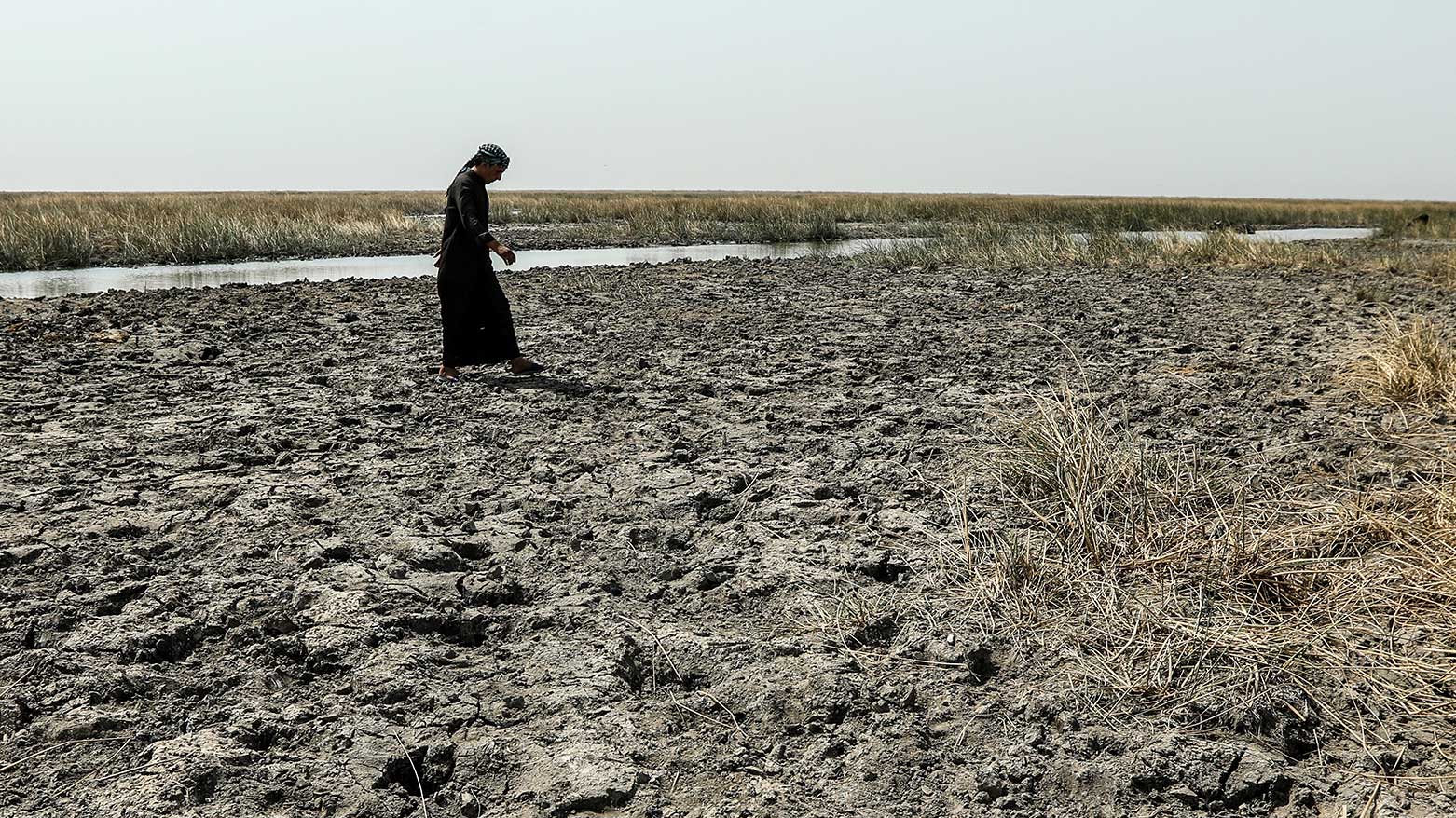Rights Group Warns of Humanitarian Disaster Amid Iraq’s Water Crisis
The center urged the Iraqi government, the House of Representatives, and relevant institutions to draft a comprehensive national strategy to mitigate the impacts of drought and prepare for anticipated risks.

ERBIL (Kurdistan24) – The Strategic Center for Human Rights in Iraq on Sunday issued a stark warning over the country’s worsening water shortages, cautioning that the crisis risks triggering a major humanitarian disaster if left unaddressed.
“Iraq is facing a humanitarian disaster caused by the water shortage crisis, along with unresolved infrastructure issues affecting its citizens," the center said in a statement.
It added that repeated tragedies—including fires in hospitals and markets, coupled with escalating environmental and climate challenges—pose a “direct threat to basic human rights.” The group criticized the government’s weak response and lack of effective prevention plans, saying these shortcomings are worsening the situation.
The center urged the Iraqi government, the House of Representatives, and relevant institutions to draft a comprehensive national strategy to mitigate the impacts of drought and prepare for anticipated risks. It also stressed the importance of involving civil society organizations and human rights groups in these efforts.
Calling for international support, the center appealed to the global community to assist Iraq in confronting climate change. It further urged states to respect water rights under international law to safeguard civil peace and protect the millions of Iraqis facing the threat of thirst, displacement, and deteriorating living conditions.
Iraq, historically known as the “land of two rivers,” has seen its water resources decline dramatically in recent decades. The combined effects of climate change, mismanagement, and upstream dam construction in neighboring Turkey and Iran have reduced the flow of the Tigris and Euphrates by more than half compared to previous decades.
The Iraqi Ministry of Water Resources warned that the Tigris-Euphrates rivers could be dry by 2040 if the crisis continues unchecked. Rising temperatures—currently increasing at nearly twice the global average—have worsened droughts and accelerated desertification, particularly in southern provinces. The United Nations estimates that at least seven million Iraqis are already affected by water scarcity, with thousands of families forced to abandon their farmlands due to declining crop yields and the salinization of soil.
For instance, the Hawizeh Marshes—one of the largest and most vital wetland systems in southern Iraq—are experiencing acute water shortages that residents say have destroyed their livelihoods and endangered their survival. The crisis has particularly affected water buffalo, a cornerstone of the local economy and daily life in surrounding villages.
Read More: Southern Iraq’s Marshes Face Severe Water Crisis, Forcing Residents to Flee
Marshland ecosystems in southern Iraq, once a UNESCO World Heritage site and home to diverse wildlife, have shrunk dramatically. Local communities, whose livelihoods depend on fishing, buffalo herding, and agriculture, face rising poverty and forced displacement. Environmental experts warn that without urgent intervention, the crisis could fuel migration, unemployment, and even social unrest.